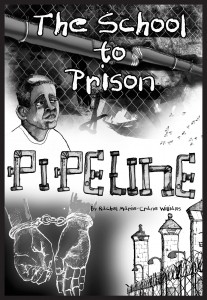“I Used to Love Him:” Falling Out of Love with Sociology…
Those who know me well have heard me lament about academic disciplines enough that it has become tedious. I know.
I am particularly morose about my own discipline of sociology. Sociology and I had a whirlwind courtship and I fell passionately in love with him. We got married and much to my dismay I found out that he wasn’t what I thought he was when we first met. We tried marriage counseling but ultimately we had to divorce. Over the past few years, we’ve been rekindling our friendship on new terms.
When I went to college, I first majored in economics. It became clear to me early on that this wasn’t a good fit. I took a sociology course and I was hooked. I was introduced to sociology by some particularly terrific professors who made the subject come alive for me. Sociology, the study of society, was sexy and appealing. I didn’t even have to try to think “like a sociologist.” It came naturally to me. Our relationship made sense and helped me make sense of myself and the world around me.I decided to get serious with sociology after a couple of years together. I went to work and saw him on the side at night. Sociology convinced me that I would become the next Jonathan Kozol. That dream got me through a Masters degree. I was sure that I had found a way to marry my passion for social theory with my driving need for social activism and organizing. I just knew that engaged and applied scholarship was the way for me.
Sociology convinced me to marry him. It was time to get serious and commit to a long-term relationship. I entered a Ph.D. program and it took less than six months for our relationship to begin to show cracks. I felt really lonely with this new version of sociology. When we left New York, sociology changed. Suddenly he didn’t value applied work. He became obsessed with words like “scientific inquiry,” “validity,” “reliability,” and “objectivity.” It’s like we weren’t even speaking the same language anymore. Sometimes, when he wanted to piss me off, he would use words like “hegemony.” That was a fighting word…
He found some new friends with whom I had little in common. Those friends didn’t look like me or sound like me. In fact, those friends seemed to have open contempt for me. My interests in race, gender, and social activism made me alien to sociology’s new friends.
Soon he told me to avoid telling others that I wanted my research to contribute to changing the word. He said that no one wanted to hear about that and that it would in fact alienate me even more from our new friends. When I told him that I wanted to hang out with some of the people who I was doing research with, he told me that this was frowned upon. When I told him that I wanted to teach in community colleges, he told me that my aspirations were too low. “You really should be aiming to teach in a tier-one “research” institution,” he would say. “All of the “best” people hang out there.”
I started writing and sending my work out. He would admonish me to publish in the journals that are most respected by the discipline. Those were ones that were read by perhaps 10 other people (perhaps only 5 if folks were being honest). When I would show him some of my writing, he would tell me that it was “good journalism” but not actually sociology. I didn’t use the word “hegemony” enough.
Slowly, I began to lose my passion for him. I started to resent him. I talked badly about him behind his back and I started cheating on him. I became promiscuous. I would write articles and send them to education journals, I would publish pieces in policy publications, and I even submitted work to be published in an anthology that I knew would not be read by his friends.
He tried to keep me in line but I started openly flaunting my disdain for him by telling others that he was inauthentic and a liar. We had a trial separation and it lasted several years. Eventually we reconciled for a while as I made my way through the morass: despondent, bitter, and disillusioned. We had our Crystal anniversary. I didn’t want to celebrate the milestone. I didn’t tell anyone that it was our anniversary. After years of trying to make it work, we finally divorced. We had both tried our best. We didn’t leave on friendly terms. All I had to show for our time together was a piece of paper unframed and a mountain of debt.
Then a funny thing happened. From a distance, I started to remember what I had once loved about him. I also noticed that I had listened to our friends more than to my own instincts. Those friends were the ones telling me that sociology didn’t like to eat theory with practice. Those friends were the ones who kept insisting that I needed to use words that no one in my family understood in order to be a good partner to sociology. I realized that our friends had become the interlocutors for sociology. Sociology’s own voice had become muffled and I had stopped listening closely to what he was saying to me.
Sociology and I are no longer in love but I find that some of the original qualities that I liked about him are still there. I decided to rekindle our friendship and that’s where we are today. We are old friends who still argue sometimes but basically like and respect each other.
You are no doubt wondering what the point of this post is… Well, I wanted to say something about how difficult it is to marry theory and practice in academia. When I see examples of people who do this well, I am always in awe. I have some friends who seem to have gotten the hang of doing this. They are stellar academics who remain firmly committed to ensuring that their work contributes to social change and justice. My own experience illustrates how hard this is. I wanted to feature one such person here today because I have so much respect for what she does.
Rachel Marie-Crane Williams is a talented artist, a great teacher and an engaged scholar. She and I have collaborated on a zine project and continue to find ways to work together. In fact, Rachel is currently creating a police violence zine that will form the basis of a new curriculum that I am developing.She uses her skills as a teacher and artist to work inside prisons and she also provides a template for others to do the same. She has written engagingly about “doing qualitative research in prisons and turning the data into graphic essays.” She is also developing a series of stories about working in prisons. I want everyone to see her amazing work. It is inspiring to me and I think that it will be to you too. It is important in this life to find touchstones who can help light the path for us to imagine what’s possible. Rachel has become just such a touchstone for me. You can see some of her work here.


